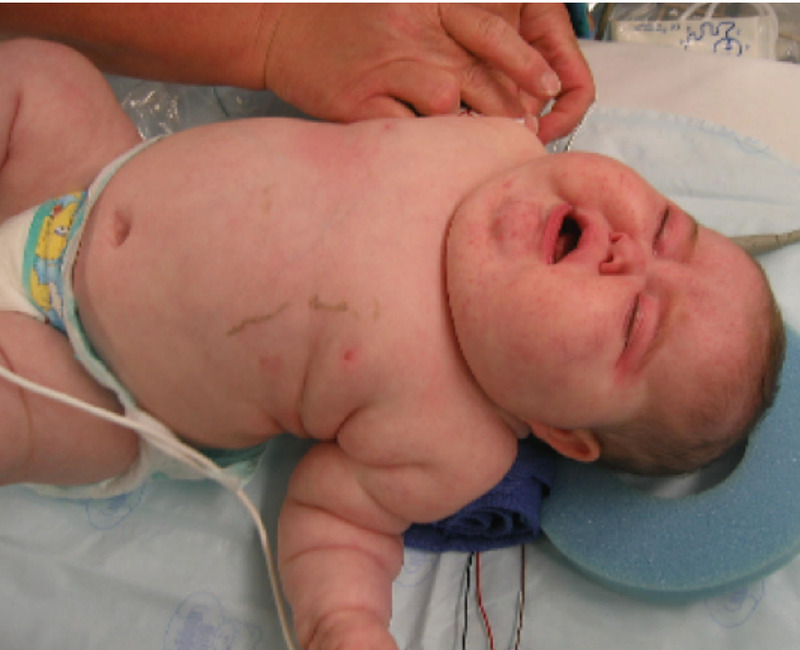Playlist
Show Playlist
Hide Playlist
Screening Tests for Hypercortisolism – Adrenal Gland
-
Slides CortisolHypercortisolism EndocrinePathology.pdf
-
Reference List Pathology.pdf
-
Download Lecture Overview
00:02 Screening tests for hypercortisolism: dexamethasone suppression, low dose is 1 mg administered at night. 00:09 Normal individual will have suppressed, normal, okay, I am walking through this quickly because I already talked about it, everything that we talked about discussed is now in verbiage just to' for reinforcement purposes. 00:19 Patient with Cushing's syndrome will not suppress cortisol normally, syndrome maybe from the adrenal cortex. 00:28 The test is considered positive if the suppressed cortisol level is greater than 1.8 µg/dl Using the value 1.8 increases the tests sensitivity which is the desired characteristic for a screening test. 00:40 24 hour urine free cortisol measurement, 4 times upper limit of normal is diagnostic. 00:48 Screening tests for hypercortisolism, I went through just quickly, much of this we already discussed, make sure that it's firmly implanted in your head. 00:56 Now, I am going to get into more specificities about how to screen for hypercortisolism, this will be in current day practice, pay attention. 01:07 Salivary control, it is a sensitive screening test, loss of normal or diurnal variation usually precedes overt hypercortisolism. 01:18 Once again, loss of normal or diurnal, what does diurnal mean? Low at the end of the day, high in the morning of cortisol. 01:29 Relatively easy to do, but requires reliable labs, measures free hormone only. 01:35 Mildly abnormal screening results may represent pseudo-Cushing's. 01:38 Pseudo-Cushing's an important topic maybe due to depression or alcoholism. 01:45 How would you feel if you are depressed? Hmm, pretty lethargic, alcoholism, pretty lethargic; psychologically you might be a little varied. 01:56 Cushing's syndrome: summary of a lab test. 02:00 Adrenal cortisol producing, we have excess cortisol ACTH is undetectable. 02:08 What kind of hypercortisolism is this, please? Primary. 02:13 In Cushing's disease, most common endogenous case. 02:17 Here, we have excess cortisol due to excess ACTH, excess cortisol and ACTH is normal or high, excess cortisol suppression by high dose dexamethasone suppression test. 02:34 Ectopic ACTH producing tumor, I am going through this quickly since we have done it already. 02:39 Excess cortisol due to ACTH producing paraneoplastically by small cell lung cancer; excess not suppressed. 02:50 Excess cortisol, not suppressed, when do-when done or doing a high dose dexamethasone suppression test. 02:58 I have abbrevi-abbreviated as Dex. 03:03 Current day practice: this is a pathophysiology question that is being increasingly asked because people are so incredibly familiar with dexamethasone suppression test that you want to make sure that you have a full understanding of the hypothalamo, pituitary, adrenal access. 03:24 Let's take a look. 03:25 This is called CRH stimulation test. 03:28 CRH, go back to normal, corticotropin releasing hormone coming out of the hypothalamus works upon the anterior pituitary to release ACTH. 03:37 Watch this. 03:39 With vasopressin to ACTH dependent Cushing's syndrome, Cushing's disease, secondary hypercortisolism will respond, but ectopic ACTH production will not. 03:50 Let me recap that. 03:52 CRH stimulation test, why would you think about using this on your exam or with a patient? You have ACTH dependent tumors, two of them, what are they again? Anterior pituitary, ectopic' anterior pituitary, ectopic. 04:09 High dose dexamethasone suppression test is going to inhibit the cortisol from whom? From your anterior pituitary. 04:16 That's high dose dexamethasone. 04:19 If your CRH, corticotropin releasing hormone, what it will do is that with Cushing's disease, you will have a response with CRH stimulation test. 04:32 With ectopic, your hypothalamus has no control over what is going on in the lung. 04:39 So, ectopic ACTH production will not be influenced by CRH. 04:46 It helps you distinguish between the two ACTH dependent. 04:50 Next, discriminate between pseudo-Cushing's and Cushing's syndrome. 04:55 Pseudo-Cushing's refers to the following conditions: physical stress, visceral obesity, Poly Cystic Ovarian Syndrome, Anorexia Nervosa, psychologic stresses, symptoms that may seem a-a little similar perhaps to Cushing's, but it's pseudo. 05:13 So, therefore, important that you are able to distinguish between Cushing's versus
About the Lecture
The lecture Screening Tests for Hypercortisolism – Adrenal Gland by Carlo Raj, MD is from the course Adrenal Gland Disorders.
Included Quiz Questions
How elevated must the 24-hour urine-free cortisol measurement level be to make the diagnosis of hypercortisolism?
- 4x upper limit of normal
- 2x upper limit of normal
- 40x average normal
- 2x average normal
- 10x upper limit of normal
Which condition may show a mildly abnormal salivary cortisol test?
- Alcoholism
- Adrenal adenoma
- Cushing's disease
- Pituitary hyperplasia
- Loss of normal diurnal cortisol levels
Which lab finding would not be expected in a patient with Cushing disease?
- Undetectable ACTH
- Excess cortisol
- Normal or high ACTH
- Normal high-dose dexamethasone suppression test
- Elevated 24-hour urine cortisol levels
What would not be expected in Pseudo-Cushing disease?
- Hypoparathyroidism
- Physical stress
- PCOS
- Major depressive disorder
- Anorexia nervosa
Customer reviews
5,0 of 5 stars
| 5 Stars |
|
5 |
| 4 Stars |
|
0 |
| 3 Stars |
|
0 |
| 2 Stars |
|
0 |
| 1 Star |
|
0 |




